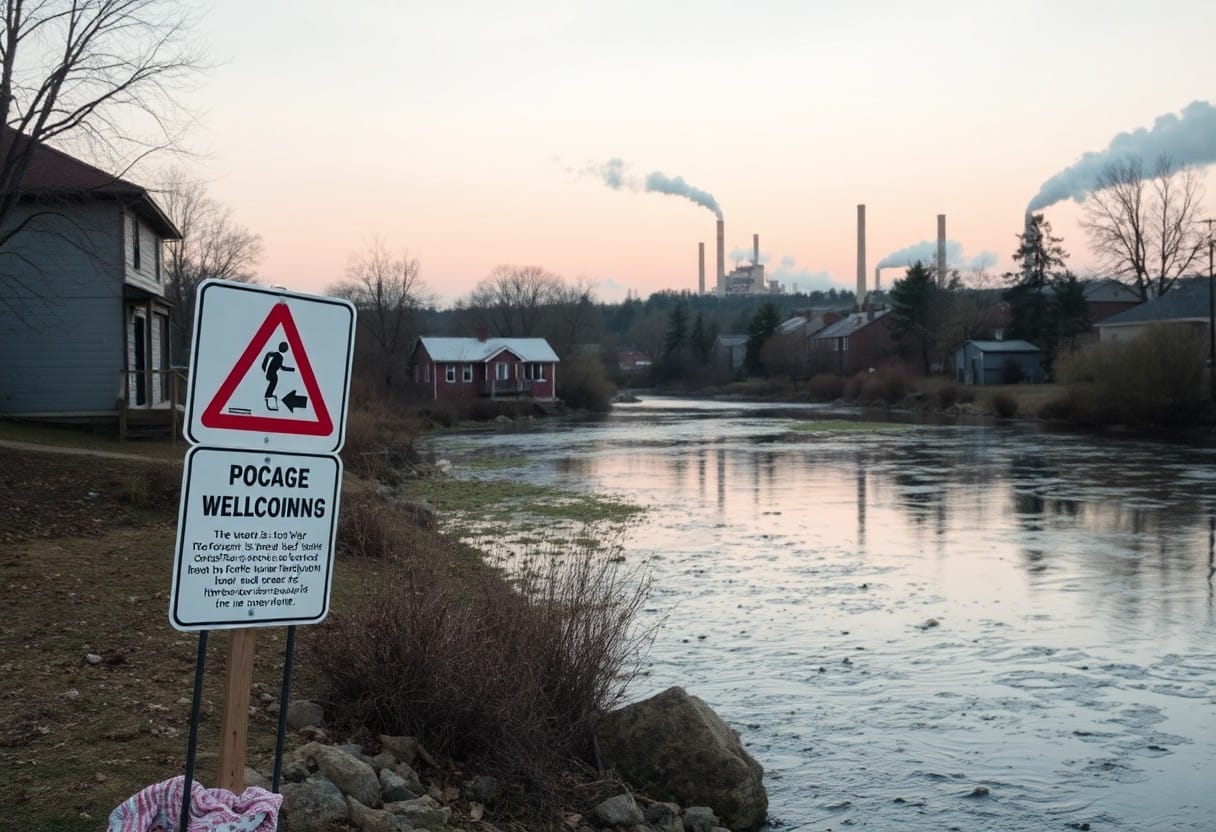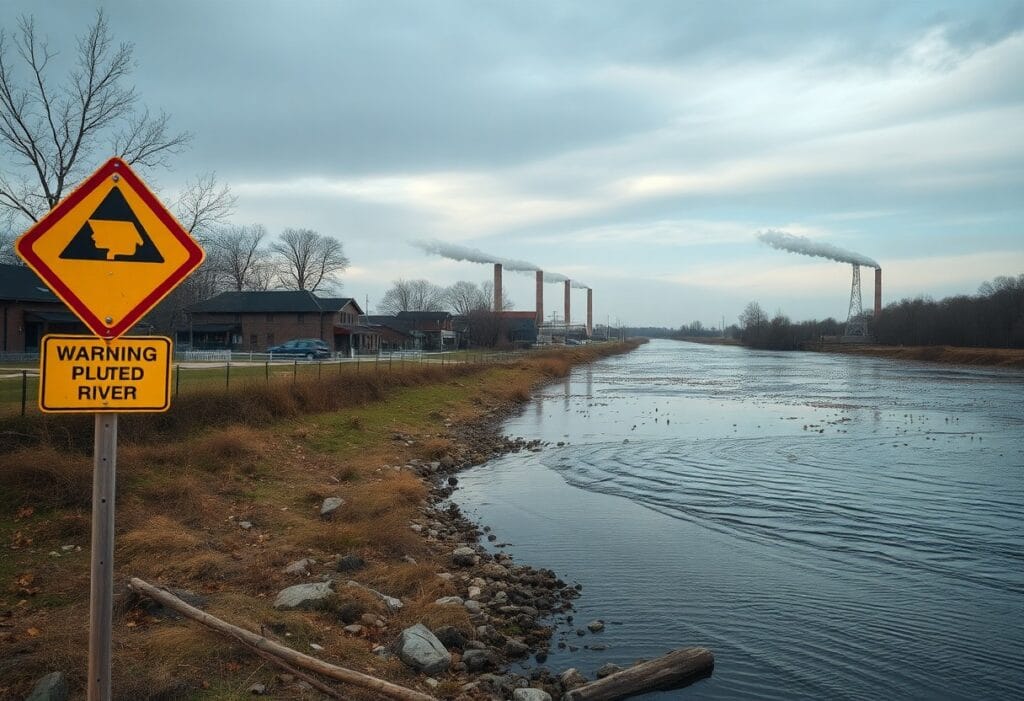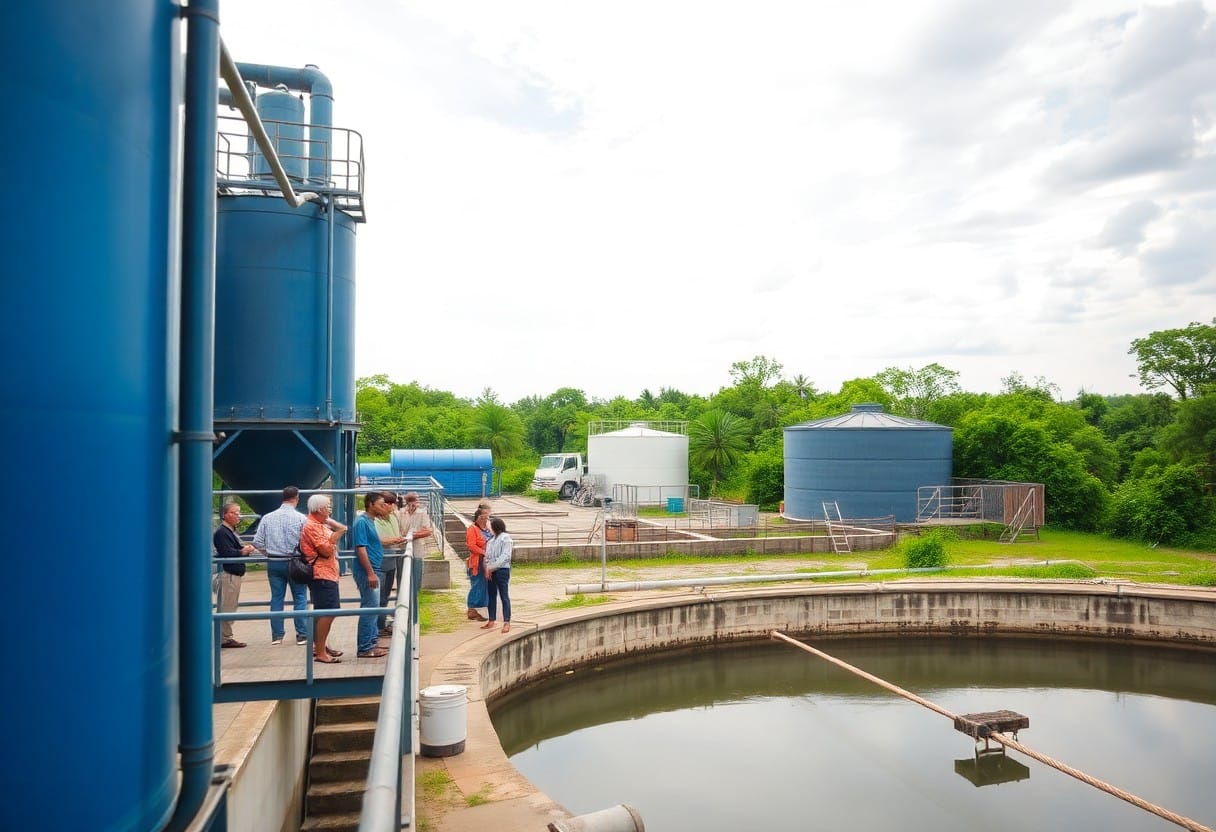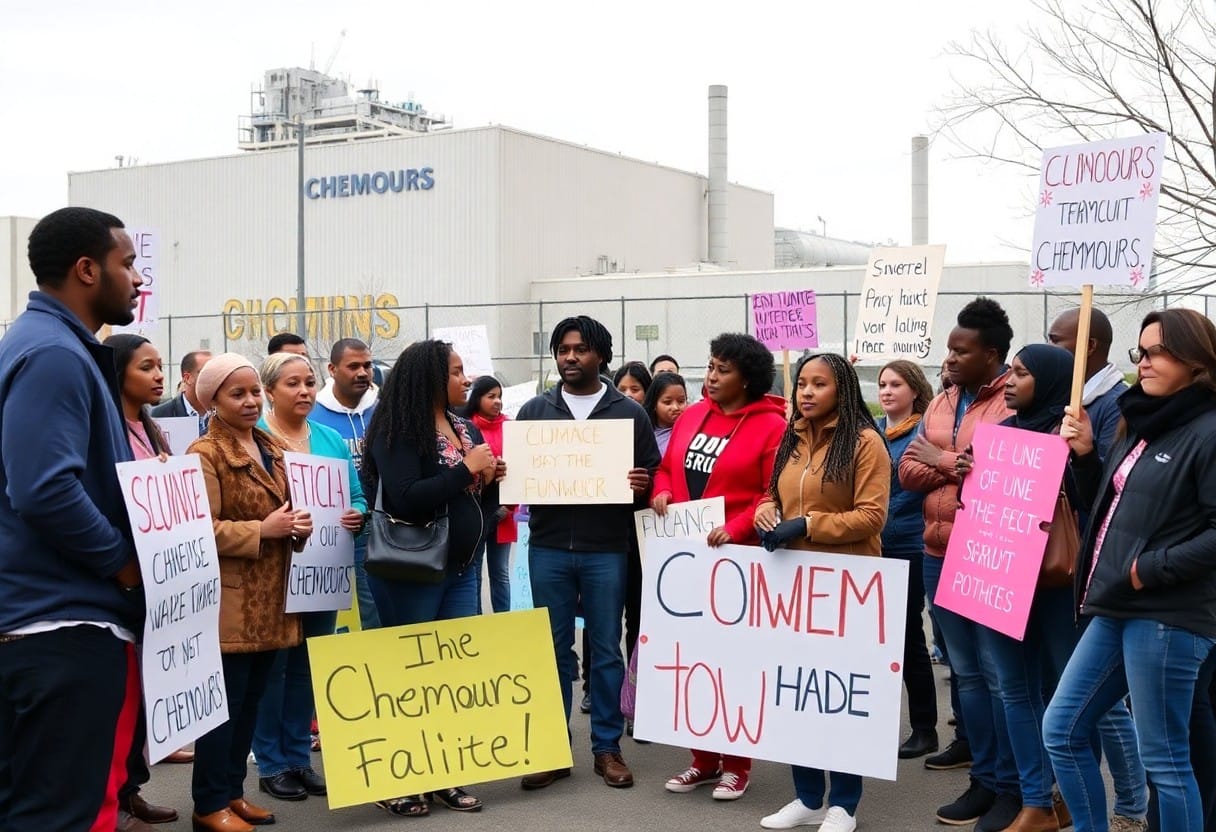Many residents in Fayetteville are understandably concerned about the impact of Chemours’ PFAS contamination on their community and health. These chemicals, often referred to as “forever chemicals,” can persist in the environment, raising questions about the effectiveness of local policies aimed at safeguarding your drinking water and public health. In this blog post, we will investigate into the troubling specifics of the PFAS crisis, examine the failures in current regulations, and discuss what steps you can take to advocate for your safety and that of your neighbors.
Background on PFAS and Chemours
To understand the current situation in Fayetteville, you need to know about PFAS, a group of synthetic chemicals that have become prevalent in industrial applications. The Chemours Company, a major player in the production of these substances, has been linked to environmental contamination and health concerns affecting local communities. As you explore this issue, it’s vital to recognize the implications of these chemicals on both the environment and public health.
What are PFAS?
Any substance that falls under the category of PFAS, or polyfluoroalkyl substances, is known for its water- and grease-resistant properties. These chemicals, often referred to as “forever chemicals,” do not break down easily in the environment and can accumulate over time in the human body and wildlife, posing significant health risks.
History of Chemours and Fayetteville
Along the lines of corporate impact, Chemours was established as a spin-off of DuPont in 2015, bringing with it a legacy of PFAS production. Your community in Fayetteville has experienced serious consequences, as the company has been involved in legal battles over contamination, specifically regarding the toxic effects on drinking water and the local ecosystem.
Indeed, Chemours’ role in the Fayetteville area dates back decades, when the manufacturing facility began producing PFAS-related chemicals, leading to widespread environmental contamination. You may be interested to learn that studies have shown alarming levels of PFAS detected in the Cape Fear River, a crucial water source for many residents. The situation is compounded by concerns related to health issues, with residents reporting increased instances of cancer and other serious conditions linked to PFAS exposure. As local and federal authorities grapple with the situation, the adequacy of current measures to protect your health and environment takes center stage.
Health Impacts of PFAS Exposure
Assuming you live in Fayetteville, understanding the health impacts of PFAS exposure is vital for your well-being. These substances are linked to a variety of adverse health effects, including increased risk of certain cancers, liver damage, and developmental issues in children. Protecting your health requires awareness of these dangers and ongoing efforts for transparency from local authorities.
Scientific Findings
Around the world, numerous studies have established connections between PFAS exposure and serious health issues. Research indicates that PFAS can disrupt hormonal function, contribute to immune system problems, and even affect thyroid health. Understanding these findings may help you grasp the urgency of addressing PFAS contamination in your community.
Community Concerns
Beside the scientific evidence, residents like you have expressed deep concerns about living in a PFAS-polluted environment. You might worry about long-term health implications or how the contamination affects your family. Moreover, community advocacy groups are demanding more accountability from Chemours and local authorities, as many residents feel abandoned and unsafe.
Concerns surrounding PFAS in Fayetteville are mounting as you and other residents seek answers from local officials. Many of you fear for your health and the health of your loved ones, especially with lingering uncertainties about the long-term effects of exposure. The community is rallying for more urgent actions and transparency from Chemours, eager to understand how these chemicals infiltrated your water supply and what is being done to mitigate the risks. Engaging in local advocacy could be a pivotal move in pushing for stronger regulations and ensuring everyone’s safety.
Fayetteville’s Regulatory Policies
Now, you may wonder how Fayetteville’s regulatory policies address the ongoing PFAS crisis. The local government’s approach has been a mix of existing frameworks and newly proposed guidelines. However, you might find that these policies often fall short in protecting residents from the dangers posed by these chemicals, raising concerns about their effectiveness and adaptability.
Existing Legislation
Between state-wide regulations and local initiatives, you might notice that existing legislation offers some provisions for managing PFAS contamination. However, these laws often lack the strict enforcement mechanisms necessary to ensure compliance, leaving gaps that can affect your safety and environmental health.
Enforcement Challenges
Regulatory challenges can significantly hinder effective enforcement of PFAS-related policies in Fayetteville. You may encounter issues like insufficient funding and staffing that have restricted the ability of local agencies to monitor and regulate PFAS levels rigorously. Protecting your community requires not only strong regulations but also the capacity to enforce them effectively.
Further complicating the situation, inconsistent monitoring practices and a lack of public awareness can make it difficult for you to understand the real extent of PFAS contamination. The regulatory bodies may struggle with limited resources, meaning that timely interventions are often delayed or ineffective. You deserve a proactive approach to ensure that environmental safety is not merely a promise, but a practice upheld by your local policies.
Community Response and Activism
Unlike the passive response you might expect, local residents have mobilized against the PFAS crisis, demanding accountability from Chemours. North Carolina residents urge the UN to investigate toxic PFAS pollution linked to the company, highlighting the growing concern for health and safety in their communities here.
Local Advocacy Groups
An increasing number of local advocacy groups have emerged to tackle the challenges posed by PFAS contamination. These organizations work to educate community members and pressure local officials to take action against Chemours, ensuring your voice is heard in the fight for a cleaner environment.
Public Awareness Campaigns
Above all, public awareness campaigns have become pivotal in informing you about the dangers of PFAS. These initiatives emphasize the need for transparency and action regarding chemical exposure, fostering a collective understanding among residents about their rights and safety.
But while public awareness campaigns are gaining traction, it is crucial for you to actively engage. Initiatives often highlight the serious health risks associated with PFAS, including long-term exposure linked to cancers and reproductive issues. Additionally, they promote community meetings and social media outreach to keep you informed about developments. By participating in these campaigns, your voice contributes to a united front, demanding changes that could lead to safer living conditions and strict regulations to prevent further contamination.

Comparison with Other Regions
After examining the PFAS policies in Fayetteville, it becomes evident that there are notable differences compared to other regions. Many cities and states have implemented stricter regulations, leading to better outcomes for their residents. The following table highlights these contrasts in policies:
| Region | Policy Approach |
|---|---|
| Fayetteville | Minimal regulation and response |
| California | Comprehensive PFAS action plans |
| New York | Strict drinking water standards |
Successful Policy Models
Regions like California and New York have adopted effective measures to tackle PFAS contamination. By enforcing strict regulations and swift action plans, these areas prioritize the health of their residents and serve as models for others. You can look at their approaches to advocate for similar changes in your own community.
Lessons Learned
Below many successful policy implementations, you can see key takeaways that Fayetteville could adopt. Building a coalition of community stakeholders, investing in public education, and mandating regular environmental monitoring can significantly improve the management of PFAS risks.
Even if your region faces challenges regarding PFAS contamination, you can draw inspiration from these successful policies. Implementing community engagement strategies, establishing transparent communication regarding testing results, and holding industries accountable for environmental harm can empower residents, leading to more proactive and effective governance regarding PFAS issues.
Recommendations for Improvement
Not addressing the PFAS crisis effectively can jeopardize your community’s health. Policymakers must take action by reviewing current regulations and implementing stricter measures. For further insights on PFAS impact, visit State ‘forever chemicals’ spotlight: North Carolina’s drinking water contamination.
Policy Enhancements
By strengthening regulations on PFAS emissions and improving monitoring systems, you can protect your community from contamination. Establishing clear guidelines for water safety will empower local authorities to act swiftly when dangerous levels of these chemicals are detected.
Community Engagement Strategies
Policy efforts must include active participation from you and your neighbors. Communities that engage in dialogues about PFAS contamination are more likely to advocate for change. Consider forming partnerships with local organizations and attending town hall meetings to push for improved communication about water safety and the ongoing risks of PFAS.
Indeed, when community members actively participate in discussions about PFAS, they promote greater awareness of health risks associated with these chemicals. Initiatives such as workshops and information sessions can empower you to take part in local policies, ensuring your voice is heard. This grassroots involvement can lead to significant pressure on local government for improvements and resources dedicated to tackling the PFAS crisis effectively.
To wrap up
From above, it becomes clear that Chemours’ PFAS crisis has significant implications for Fayetteville residents. You must assess whether local policies adequately protect your health and environment in light of the ongoing contamination issues. As you navigate this complex situation, staying informed and engaged with community efforts is necessary for driving change and holding responsible parties accountable. Your voice and actions can influence the effectiveness of policies that safeguard your community’s well-being.


















